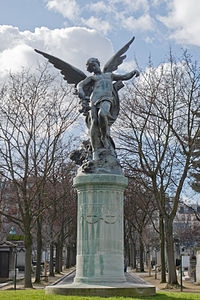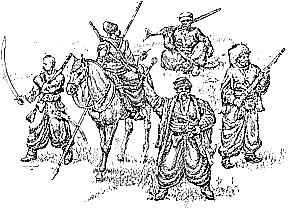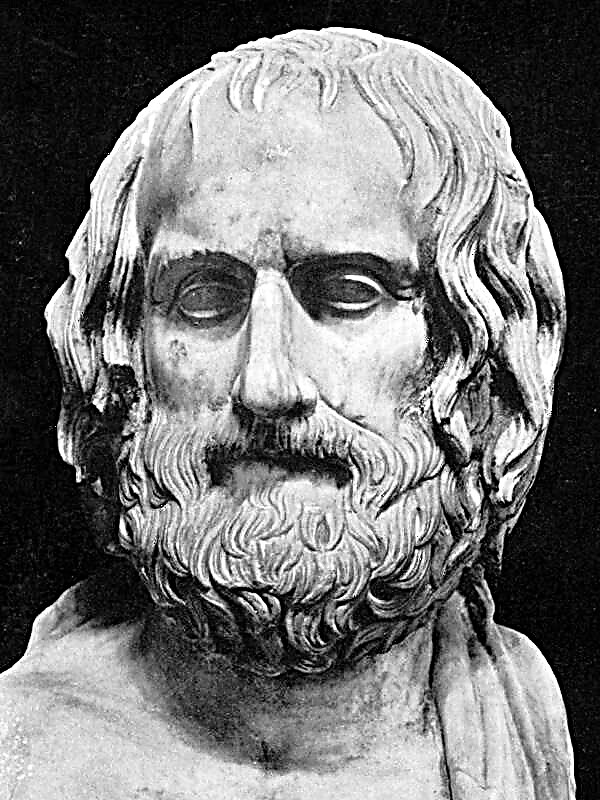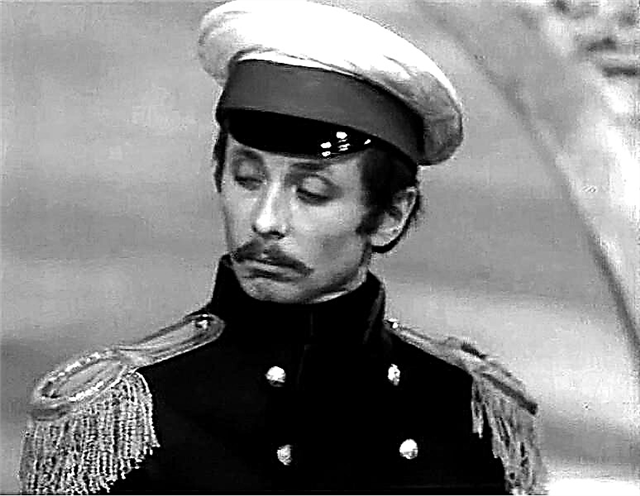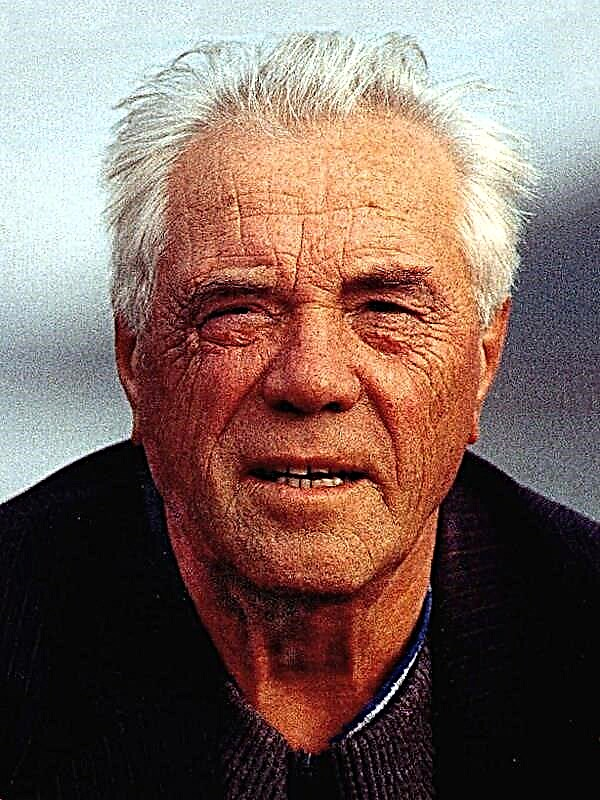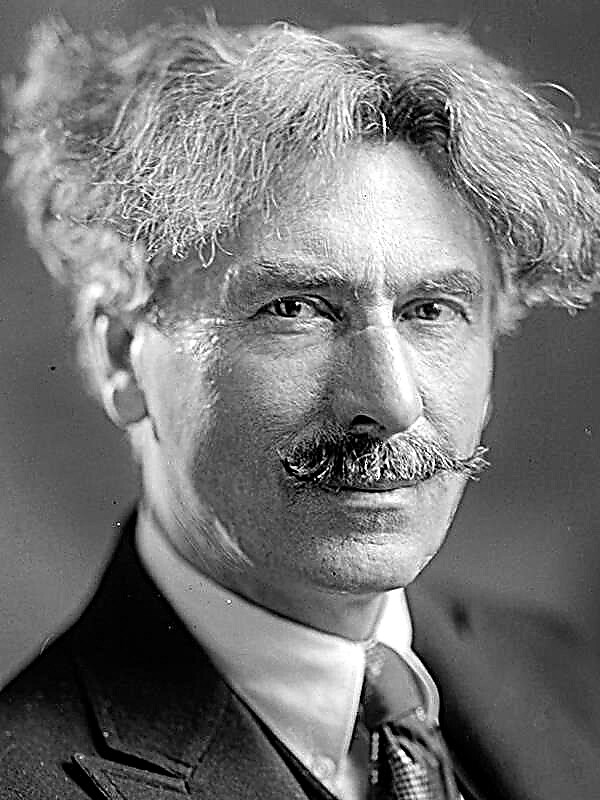The play, based on the plot of the motifs of the myth of Oedipus, takes place in ancient Greece. Queen Thebes of Jocasta, in order to prevent the oracle from predicting that her son, when he grows up, will kill his own father, the ruler of Thebes king Lai, seventeen years ago ordered the servant to injure the feet of her youngest son, tie him up and leave him alone in the mountains on certain death. A certain shepherd found the baby and carried it to the king and queen of Corinth, who had no children, but passionately dreamed about them. They lovingly raised him, calling him Oedipus. Turning into a youth, Oedipus learned from one of the Delphic oracles that he was prepared to kill his father and marry his own mother. Unaware that he is the adopted son of the rulers of Corinth, Oedipus leaves them and leaves the city. On the way he meets a horse escort. One of the horses offends Oedipus. A quarrel flares up between him and the inept rider. The horseman swings at Oedipus, he wants to repel the blow, but, having missed, falls not on the horseman, but on his old master. The old man dies from a blow. Oedipus does not even suspect that his father, King Lai, ruler of Thebes, is killed.
Jocasta, the inconsolable widow, bitterly laments her deceased husband. A few days later, rumors reached her that the ghost of King Lai almost daily at dawn was a soldier who was guarding the fortress wall of the city, talking incoherently with them and asking him to warn his wife about something incredibly important. One night, Jocasta comes to the wall in the hope that her arrival will coincide with the appearance of the ghost, and while the ghost is not visible, he tries to check if the guards are deceiving her. Throughout the scene of their conversation, an invisible ghost reappears against the wall, calling in vain to his wife and begging to pay attention to him. Only after the departure of the tsarina and her adviser, Tiresias, the soldiers manage to discern the ghost of the tsar against the background of the wall, who only has time to ask the tsarina to be sent to beware of the young man who is currently on the outskirts of the city. Having uttered the last words, the ghost disappears, so that it will never again appear in the world of the living. At this very time, not far from Thebes, Oedipus is confronted with the Sphinx, whom he was looking for everywhere, but, having faced him closely, he does not immediately recognize him, since the monster appears before him in the guise of a young girl. The sphinx by that time was already tired of making riddles and killing all those who could not solve them, so he tells Oedipus the answer to his next question and gives the young man the opportunity to get out of the competition as a winner. The defeat of the Sphinx gives Oedipus the opportunity to marry Jocasta, for the queen has promised that she will marry someone who knows how to deal with the Sphinx and become the ruler of Thebes, which Oedipus has long sought. Oedipus is happy and, not thanking the Sphinx for his kindness, pleased with himself, runs away towards the city. The Sphinx is indignant at the ingratitude of Oedipus, he is ready to send after him the pursuit of Anubis, a deity with the body of a man and the head of a jackal, and order him to tear Oedipus to pieces. Anubis, however, advises the Sphinx not to rush into retribution and tells him about the joke that the gods decided to play with the unsuspecting Oedipus: he has to marry his own mother, give birth to her two sons and two daughters, and three of the children must will die a violent death. The Sphinx is pleased with this prospect and agrees to wait in order to enjoy the picture of Oedipus grief in the future.
Oedipus and Jocasta's wedding day is declining. The newlyweds retire to Jocasta’s bedroom. The queen asks her husband to pay tribute to the traditions and meet with the blind elder Tiresias, the spiritual mentor of Jocasta. Tiresias is extremely pessimistic about the marriage of the Queen and too young, and besides, as he believes, the poor tramp Oedipus. Upon learning that Oedipus is the offspring of the kings of Corinth, Tiresias changes his attitude towards the bride and groom and the opinion of the Queen’s marriage in general.
Having met in Jocasta’s bedroom, the newlyweds almost immediately plunge into a heavy sleep to the limit of people weary of day cares. Each of them dreams of horrors - Oedipus associated with the Sphinx, and Jocaste with the incest predicted to her. When he wakes up and sees old scars on Oedipus’s feet, the amazed Jocasta begins to question him about their nature and, to his relief, learns that he received them, according to the stories of his parents, as a child during a forest walk. Unable to restrain unrest, Jocasta makes her husband a half-confession by telling him how one of her maidservants allegedly took her baby son with pierced feet seventeen years ago to the mountains and left him there alone.
The next seventeen years, that is, the years of the married life of Oedipus and Jokasga, flew by like a happy moment. The Theban royal spouses had four children, nothing spoiled their existence. But after a ghostly happiness catastrophe erupted. Heaven brought down a plague epidemic on the city, so that the king would discover the true grief and understand that it was just a toy in the hands of ruthless gods. Oedipus learns that his father, King of Corinth, died of old age. This news is partly even pleasing to Oedipus, as it gives him hope that he managed to escape the fate predicted by the oracle. Oedipus's mother, Merope, is still alive, but her advanced age, according to Oedipus, is a reliable defense against the implementation of the second part of the prediction. However, the messenger, who brought the news of the death of the king, tells Oedipus that he is the adopted son of the deceased. Many years ago, one shepherd, who was the father of a messenger, found the baby Oedipus in the mountains and carried to the palace.
Oedipus did not kill King Corinth, but he recalls that somehow he nevertheless caused the death of one man whom he met at the intersection of roads leading from Delphi and from Davlia. At that very moment, Jocasta realizes that it was Oedipus who killed Lai, his real father, and realizes that the prediction was complete. In holy terror, she leaves Oedipus, talking with the messenger, Tiresias and Creon, the brother of Jocasta, and commits suicide by hanging on her own scarf. Oedipus, remembering the recognition of Jocasta seventeen years ago, is convinced that he is the son of Lai and the servant of Jocasta. Noticing the disappearance of his wife, he goes after her, but returns in horror and reports the death of his wife. His eyes are gradually opening, he understands that Jokasta is both a son and a husband, and the plague that fell on Thebes is a punishment to the city for finding the greatest sinner in it. The plague is called to heat the atmosphere, so that finally a thunderstorm breaks out, coming from the depths of centuries. Oedipus rises in despair to his chambers.
After a while, the cry of Antigone, one of Oedipus's daughters, comes from there. She calls all those present upstairs: Antigone found the corpse of her mother, and next to him - her father, who poked out his eyes with the golden brooch of Jocasta. Everything around is covered in blood. Creon cannot comprehend why Oedipus did just that: he believes that it would be better to follow the example of Jocasta. Tiresias is inclined to believe that this is the cause of Oedipus's pride: he was the happiest of mortals, now he prefers to become the most miserable of them.
On the stage there is a ghost of Jocasta, dressed in all white. Only the blind Oedipus and the almost blind Tiresias are able to see him. Now Jocasta appears before Oedipus only as his mother. She comforts her son and, henceforth protecting from all dangers, leads him away after herself. Together with Oedipus, Antigone also leaves, not wanting to part with her father. All three leave the palace and leave the city.

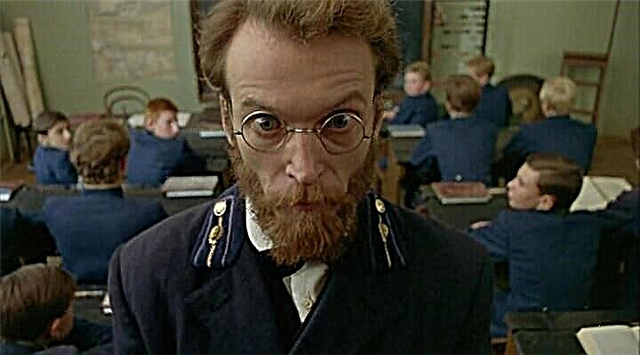
 Business in the style of F ***
Business in the style of F ***